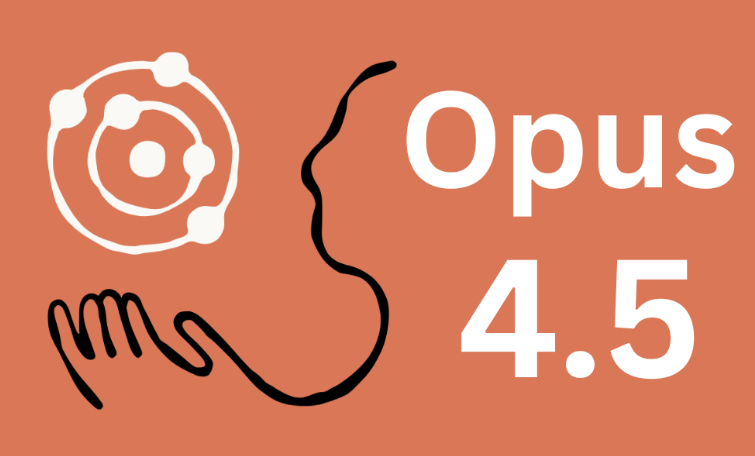November 18-25, 2025: Seven Days That Reshaped the AI Landscape
In one extraordinary week, two tech giants unleashed their most powerful AI models, igniting the most intense competitive battle the artificial intelligence industry has ever witnessed. Google released Gemini 3 Pro on November 18, 2025, and just seven days later, on November 24-25, Anthropic countered with Claude Opus 4.5. This wasn't coincidence—it was strategy, ambition, and the relentless pace of AI evolution colliding in real-time.
For consumers, developers, and businesses worldwide, this week represents a watershed moment: the era when frontier AI capabilities became both dramatically more powerful and significantly more affordable. Let's break down what happened, what it means, and why these seven days will be remembered as the turning point in accessible artificial intelligence.
The Timeline: A Week of AI Warfare
November 18, 2025 – Google Strikes First
Google launched Gemini 3 Pro, describing it as their most intelligent model with state-of-the-art reasoning. The announcement was massive in scope, with immediate deployment reaching 2+ billion users through Google Search integration and 650 million users in the Gemini App. The model topped industry benchmarks and promised to transform how people interact with AI.
The launch sent shockwaves through the industry. Salesforce CEO Marc Benioff announced he was switching from ChatGPT to Gemini, helping push Alphabet's stock up more than 6% in a single day.
November 24-25, 2025 – Anthropic's Swift Response
Anthropic released Claude Opus 4.5 on November 24-25, describing it as the world's most capable model for coding, agents, and computer use. The timing was unmistakable: this was their attempt to retake the crown after challenges from both Google's Gemini 3 and OpenAI's GPT-5.1-Codex-Max.
What made Anthropic's response even more remarkable was the pricing strategy. Opus 4.5 launched at $5 per million input tokens and $25 per million output tokens, representing about a two-thirds price cut from Opus 4 while delivering superior performance.
Head-to-Head Comparison: The Technical Battle
Performance Benchmarks: Who Wins?
| Capability | Claude Opus 4.5 | Gemini 3 Pro | Winner |
|---|---|---|---|
| Coding (SWE-bench Verified) | 80.9% | 76.2% | Opus 4.5 |
| Terminal Coding (Terminal-bench 2.0) | 59.3% | 54.2% | Opus 4.5 |
| Graduate Reasoning (GPQA Diamond) | 87.0% | 91.9% | Gemini 3 Pro |
| Multilingual Q&A (MMLU) | 90.8% | 91.8% | Gemini 3 Pro |
| Computer Use (OSWorld) | 66.3% | — | Opus 4.5 |
| LMArena Leaderboard | — | 1501 Elo | Gemini 3 Pro |
| Context Window | 200,000 tokens | 1,000,000 tokens | Gemini 3 Pro |
| Knowledge Cutoff | March 2025 | — | Opus 4.5 |
Pricing Comparison: The Cost Revolution
| Model | Input Cost (per 1M tokens) | Output Cost (per 1M tokens) | Value Proposition |
|---|---|---|---|
| Claude Opus 4.5 | $5 | $25 | Premium performance at midrange pricing |
| Gemini 3 Pro | $2 (or $4 for >200K tokens) | $12 (or $18 for >200K tokens) | Most affordable frontier model |
| Claude Opus 4.1 (previous) | $15 | $75 | 67% more expensive than 4.5 |
The pricing战场 has shifted dramatically. Gemini 3 Pro costs $2/$12 for standard usage, or $4/$18 for contexts exceeding 200,000 tokens, making it the most cost-effective frontier model. However, Opus 4.5's 67% price reduction from its predecessor while maintaining top-tier performance creates a compelling middle ground.
Real-World Performance: Beyond The Numbers
Coding Excellence – Claude Opus 4.5's Domain
On SWE-bench Verified, a benchmark measuring real-world software engineering tasks, Claude Opus 4.5 achieved 80.9% accuracy, outperforming OpenAI's GPT-5.1-Codex-Max at 77.9%, Anthropic's Sonnet 4.5 at 77.2%, and Google's Gemini 3 Pro at 76.2%.
Perhaps most remarkably, when tested on Anthropic's notoriously difficult performance engineering hiring exam using parallel test-time compute, Opus 4.5 scored higher than any human candidate who has ever taken the test within its two-hour limit.
Multimodal Understanding – Gemini 3 Pro's Strength
Gemini 3 Pro is described as the best model in the world for multimodal understanding, with significant improvements to reasoning across text, images, audio, and video. It achieved breakthrough scores including 37.5% on Humanity's Last Exam (without tools) and 91.9% on GPQA Diamond.
Computer Control – Opus 4.5's Innovation
Claude Opus 4.5 achieved 66.3% on OSWorld, a benchmark testing the ability to actually operate computers and navigate interfaces. This capability, combined with enhanced memory for managing long-context operations, positions Opus 4.5 as a breakthrough for automation and agentic workflows.
What This Week Means for Consumers
The Democratization of Frontier AI
For the average consumer, the week of November 18-25, 2025 represents the moment when cutting-edge AI capabilities became genuinely accessible rather than aspirational luxuries.
Price Accessibility
Just months ago, accessing frontier-level AI meant either paying premium subscription fees or accepting usage limits that restricted practical application. The combination of Gemini 3 Pro's aggressive pricing and Opus 4.5's 67% cost reduction means consumers can now access the world's most capable models for everyday tasks without breaking the bank.
Performance Without Compromise
Previous generations forced users to choose between capability and cost. Budget models were competent but limited; premium models were powerful but prohibitively expensive for regular use. The November 2025 releases shatter this trade-off: both Opus 4.5 and Gemini 3 Pro deliver frontier performance at accessible price points.
Platform Choice and Competition
The rapid-fire releases within seven days mean consumers benefit from genuine competition. Google's ecosystem integration through Search, Workspace, and Android provides seamless convenience. Anthropic's multi-platform strategy—including availability through Amazon Bedrock, Google Vertex AI, and Microsoft Foundry—ensures users can access Claude regardless of their existing technology stack.
Real-World Use Cases Transformed
For Students and Researchers
Gemini 3 Pro demonstrates PhD-level reasoning with top scores on academic benchmarks, while Opus 4.5's superior coding capabilities enable students to build sophisticated projects. The combination of affordable pricing and powerful capabilities means educational applications that were theoretical just weeks ago are now practical.
For Small Business and Entrepreneurs
The price reductions enable small teams to leverage AI for tasks previously requiring expensive consultants or large development teams. Anthropic identified ideal Opus 4.5 users as professional software developers and knowledge workers like financial analysts, consultants, and accountants—precisely the roles that drive small business success.
For Everyday Productivity
Instead of hitting hard context limits, Claude now summarizes older portions of conversations when needed, enabling truly long-form interactions. Claude for Chrome, which allows Claude to take action across browser tabs, is expanding to all Max users, while Claude for Excel is now generally available to all Max, Team, and Enterprise users.
Meanwhile, Gemini 3 launched simultaneously in Google Search AI Mode reaching 2 billion users and Gemini App reaching 650 million users, embedding powerful AI directly into workflows billions already use daily.
The Significance for AI Development
Accelerating Innovation Cycles
The seven-day gap between these releases represents an unprecedented acceleration in AI development timelines. Traditional technology product cycles span months or years; frontier AI models now leap forward weekly.
This breakneck pace creates several implications:
Competitive Pressure Drives Excellence
Neither company could afford to wait. Google's November 18 launch forced Anthropic's hand; had they waited another month, Gemini 3 Pro might have captured mindshare and market position difficult to reclaim. The result? Consumers get better products, faster.
Iterative Improvement at Scale
Google specifically noted that it plans to release additional models to the Gemini 3 series soon, while Anthropic has now released three major models in two months (Sonnet 4.5 in September, Haiku 4.5 in October, and Opus 4.5 in November). This iterative approach means continuous improvement rather than infrequent revolutionary leaps.
Benchmark Wars and Real-World Impact
The competition has shifted focus from purely academic benchmarks to practical capabilities. Opus 4.5's victory on Anthropic's own hiring exam raised questions about how AI will change engineering as a profession, moving beyond “can it pass this test” to “can it do this job.”
The End of “Good Enough” AI
Pre-November 2025, many businesses and consumers settled for “good enough” AI—capable models that handled basic tasks but struggled with complex challenges. The week of November 18-25 made “good enough” obsolete.
New Performance Baseline
Gemini 3 Pro tops the LMArena Leaderboard with a breakthrough score of 1501 Elo, while Opus 4.5 became the first model to break the 80% barrier on SWE-bench Verified. These aren't incremental improvements—they represent step-changes in what AI can accomplish.
Affordable Excellence
Perhaps most significantly, this new baseline comes at dramatically reduced costs. Users no longer need to choose between capability and affordability; they can have both.
Technology Industry Implications
The Platform Wars Intensify
Google's Ecosystem Advantage
Google's November 18 launch leveraged the company's unmatched distribution advantage. Day-one deployment across Google Search, Gemini App, and Google Cloud services achieved distribution scale no competitor can match.
This ecosystem integration creates powerful network effects. Gemini 3 Pro doesn't exist in isolation—it powers Search results, enhances Workspace productivity, and integrates with Android devices billions already own.
Anthropic's Multi-Platform Strategy
Anthropic pursued a different approach: platform-agnostic availability. Opus 4.5 launched simultaneously across Claude apps, the Claude API, and all three major cloud platforms—Amazon Bedrock, Google Vertex AI, and Microsoft Foundry.
This strategy ensures developers can adopt Claude regardless of their existing infrastructure commitments, preventing lock-in while maximizing addressable market.
The Economics of AI Development
The week revealed something crucial about AI economics: frontier capabilities can become affordable through technical innovation, not just scale efficiencies.
Training vs. Inference Costs
Opus 4.5's pricing at $5/$25 per million tokens, compared to Opus 4's $15/$75, represents about a two-thirds price cut despite superior performance. This suggests breakthrough improvements in model efficiency, not merely economies of scale.
Competitive Pricing Pressure
With Google and Anthropic both dramatically reducing prices while improving performance, competitors face intense pressure to match both dimensions. OpenAI, Meta, and other players must now deliver comparable capabilities at comparable costs—or risk losing market position.
The Agentic Future Arrives
Both releases emphasized autonomous agent capabilities—AI systems that can work independently over extended periods to accomplish complex tasks.
Long-Horizon Tasks
Claude Opus 4.5 excels at long-horizon, autonomous tasks, especially those requiring sustained reasoning and multi-step execution. Gemini 3 enables advanced reasoning with large sets of tools, facilitating long-running tasks across enterprise systems and data.
From Assistant to Autonomous Worker
The shift from AI-as-assistant to AI-as-autonomous-worker represents a fundamental change in how humans and machines collaborate. Rather than requiring constant human direction, these models can receive high-level goals and independently determine execution strategies.
Community Response: What Users Are Saying
Reddit and Developer Communities React
The community response reveals telling patterns about how users evaluate these competing models.
Gemini 3 Pro: Everyday Excellence
In Reddit discussions, users often rank Gemini 2.5 Pro (Gemini 3 Pro's predecessor) as their top choice for personal use, citing its context size, speed, and free access in AI Studio as major advantages. The pattern suggests Gemini models excel at breadth—handling diverse everyday tasks efficiently.
Claude Opus: Coding Supremacy
Users consistently identify Claude Opus models as definitively better at coding than both Gemini and GPT models. The consensus: when code quality matters most, Claude delivers superior results.
Professional Adoption Patterns
Early enterprise feedback reveals distinct use case preferences:
Gemini 3 Pro for Integration-Heavy Workflows
Organizations already embedded in Google Workspace and Google Cloud report seamless Gemini integration as a decisive advantage. The ability to analyze data, generate reports, and automate workflows entirely within existing toolchains reduces friction and accelerates adoption.
Opus 4.5 for Mission-Critical Development
Partners like GitHub, Cursor, Lovable, and Warp reported that Opus 4.5 delivers measurable gains on their hardest evaluations and maintains consistent performance through 30-minute autonomous coding sessions. For tasks where precision and reliability trump convenience, Opus 4.5 earns preference.
Choosing Between Them: A Practical Guide
When to Choose Gemini 3 Pro
Best For:
- Users already embedded in Google ecosystem (Search, Workspace, Android)
- Tasks requiring massive context windows (up to 1M tokens vs. Opus 4.5's 200K)
- Multimodal projects combining text, images, audio, and video
- Budget-conscious applications where cost per token matters most
- Academic and scientific reasoning tasks where Gemini achieved breakthrough scores
Key Advantage: Immediate availability to 2+ billion users through Google Search and ecosystem integration means zero deployment friction for consumers and businesses already using Google products.
When to Choose Claude Opus 4.5
Best For:
- Professional software developers building complex applications
- Agentic workflows requiring multi-step autonomous execution
- Computer use and automation across desktop applications
- Teams prioritizing code quality and reliability over speed
- Platform-agnostic deployments across multiple cloud providers
Key Advantage: Industry-leading coding performance that exceeded every human candidate on Anthropic's hiring exam, combined with two-thirds price reduction from previous Opus models.
The Hybrid Approach
Many sophisticated users adopt a multi-model strategy:
- Gemini 3 Pro for research, document analysis, and everyday productivity
- Claude Opus 4.5 for critical coding tasks and autonomous agent deployment
- Model-specific APIs for specialized workflows that play to each model's strengths
This approach maximizes capabilities while optimizing costs—using each model where it provides the greatest value.
The Broader Context: Why This Week Matters
The Democratization Inflection Point
November 18-25, 2025 represents the moment when frontier AI capabilities crossed from “expensive premium product” to “accessible commodity.” This transition mirrors other technology shifts—mainframe to personal computer, desktop software to web apps, smartphones becoming ubiquitous.
Historical Precedent
When powerful technology becomes affordable and accessible, adoption accelerates exponentially. The iPhone didn't create the smartphone category—it made smartphones accessible enough for mainstream adoption. Similarly, Gemini 3 Pro and Opus 4.5 didn't invent frontier AI—they made it accessible enough for everyday use.
Network Effects Accelerate
As more users and developers adopt these models, they generate feedback, discover use cases, and build applications that expand the ecosystem. This creates a virtuous cycle: better models → more users → more applications → more value → even better next-generation models.
The Competitive Dynamics Reshape
The seven-day release window established new competitive norms for the AI industry:
Speed Matters
Waiting months between releases risks ceding market position. Anthropic's swift response to Gemini 3 Pro demonstrates that AI companies must maintain relentless development pace or risk irrelevance.
Simultaneous Capability and Cost Competition
Previous technology cycles often saw companies compete on either features or price. The November 2025 releases prove AI companies must win on both simultaneously—superior capabilities at lower prices, not one or the other.
Platform Integration vs. Platform Agnosticism
Google's ecosystem integration strategy and Anthropic's multi-platform approach represent fundamentally different theories of market success. Both showed early strength, suggesting room for multiple winners with distinct strategies.
What Comes Next
The implications of this extraordinary week will unfold over months and years:
Immediate Future (Weeks to Months)
- Additional models in the Gemini 3 family, as Google promised
- Refinements and improvements to Opus 4.5 based on user feedback
- Competitive responses from OpenAI, Meta, and other players
- Rapid application development leveraging new capabilities
Medium Term (Months to Year)
- Emergence of novel applications impossible with previous-generation models
- Industry consolidation as capabilities commoditize
- Regulatory attention as AI capabilities grow
- Shifts in employment patterns for roles AI can now perform
Long Term (Years)
- Integration of frontier AI into every knowledge work workflow
- New categories of products and services enabled by affordable intelligence
- Fundamental questions about human-AI collaboration and division of labor
- Continued acceleration of capability improvements
Conclusion: Seven Days That Changed Everything
The week of November 18-25, 2025 will be remembered as the moment when frontier AI became genuinely accessible. Google's release of Gemini 3 Pro on November 18 and Anthropic's response with Claude Opus 4.5 just seven days later created competitive intensity that benefited everyone: consumers gained powerful, affordable tools; developers gained capable platforms for building innovative applications; businesses gained AI capabilities previously reserved for tech giants.
The technical achievements are remarkable—Gemini 3 Pro's 1501 Elo score on LMArena and Opus 4.5's 80.9% on SWE-bench Verified represent genuine breakthroughs. But the economic transformation matters even more: frontier capabilities at midrange prices fundamentally changes who can build with AI and what they can accomplish.
For consumers, this means AI assistance that actually assists—reliably, affordably, across the tasks that matter most. For developers, it means building applications that were theoretical just weeks ago. For businesses, it means automation and augmentation previously requiring massive investment.
And for the technology industry, it establishes a new competitive pace: continuous innovation, simultaneous capability and cost improvements, and relentless pressure to deliver better experiences to users.
The AI revolution didn't begin on November 18, 2025—but the week of November 18-25 marked the moment it became accessible enough for everyone to participate. What we build with these tools in the coming months and years will determine whether this extraordinary technological moment fulfills its potential to augment human capability, expand opportunity, and create value broadly rather than narrowly.
The race is far from over. If anything, November 18-25 marked the real starting gun—the moment when frontier AI competition shifted from labs to the real world, from researchers to everyday users, from aspiration to practical application.
What comes next will be determined by all of us: the developers who build with these models, the businesses that deploy them, and the billions of consumers whose adoption (or rejection) will shape AI's trajectory. Seven days changed the landscape. The next seven years will reveal what we build on it.
Explore Gemini 3 Pro in the Gemini App, Google AI Studio, and throughout Google's ecosystem. Experience Claude Opus 4.5 via the Claude API, Claude apps, and major cloud platforms including AWS Bedrock, Google Vertex AI, and Microsoft Foundry.









